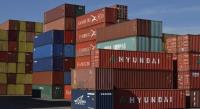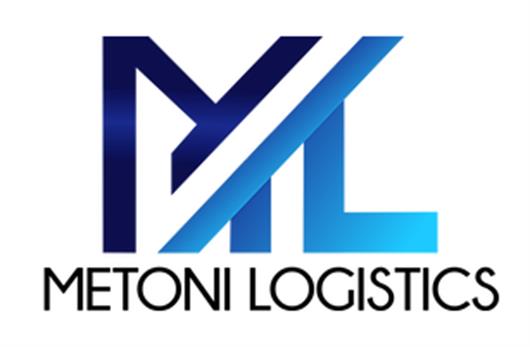 Add My Company
Add My Company
Sign In
Metoni Logistics Import Guide
13-10-2022

Importing freight doesn’t have to be a difficult process and although there are lots of pieces that have to fall into place to ensure your cargo is imported correctly, with as few delays as possible and is cost effective for everyone involved.
The world of importing into the United Kingdom has changed dramatically over the last 6 years and is still changing now. Brexit, Covid and container shortages are some of the issues that are worrying importers. Metoni want to make importing cargo go as smoothly as possible, which is why we’ve created this guide to help you understand exactly what is involved and what problems may arise and how we can help you through them.
Contents
· Insurance and why you should have it
· Incoterms
· Process
· Registering for EORI, CDS
· Different Modes of Transport
· Delays
· Surcharges
Insurance and why you should have it
There are plenty of reasons why insurance is one of the most important things to arrange when deciding to import. It may seem like one of those things where it doesn’t matter whether you have it or not but like any insurance it helps you to have it as protection just in case. You never want to use your insurance, but it’s there for a reason.
A case in point is the recent case of the Ever Given – the container ship that got stuck in the Suez Canal in March 2021.
The vessel was stuck for six days causing over $1 billion worth of costs for the salvage mission. There was also food and other fresh produce on board that slowly rotted under the Egyptian heat. Not only that, but once the vessel was released from the canal, it was then held in Egypt for a court case between the Egyptian authorities and the ship owners for damages and the costs of the salvage. The vessel eventually arrived into the UK in August 2021, four months later than scheduled.
The shippers and consignees who had insurance would have been able to claim for the cost of the cargo and any damages for loss of earnings or abandonment fees etc.
Having insurance gives you the peace of mind that if something does go wrong, you are covered and can claim if needed. Insurance for shipping is like any insurance, you hope you never need it, but it’s better to be safe than sorry.
Incoterms
The terms by which you and your shipper agree on are also important factors to take into account. For importers, the best incoterms are those where you can be in control of the charges you’ll be paying when the cargo arrives and is ready for clearance and delivery.
What are the different types of incoterms?
· EXW – ‘Exworks’ the seller manufactures the goods, but it is down to the buyer to organise carriage from the seller’s warehouse to the port or shipping agent warehouse for loading. The buyer is responsible for all charges once the cargo arrives.
· FCA – ‘Free Carrier’ the seller will deliver the cargo to a named warehouse at their cost. The buyer is then responsible for all costs after this.
· CPT – stands for ‘Carriage Paid To’, the seller has to get the cargo to an agreed place and pay for the costs of the carriage to the named place. This is usually the destination port.
· CIP – this is the same as CPT, but the seller is also responsible for buying the insurance cover. The buyer is only responsible for buying the minimum level of insurance, unless expressly agreed.
· DAP – ‘Delivered at Place’ the seller’s responsibility ends when the cargo is delivered to a named place of destination, usually the buyer’s warehouse.
· DPU – ‘Delivered at Place Unloaded’ the seller’s responsibility ends when the goods are ready for the buyer to pick up or arrange delivery. This is usually the shipping agent’s warehouse where the container was unloaded.
· DDP – ‘Delivered Duty Paid’ this is the same as DPU, but the seller pays for the customers clearance at destination and pays the duty (but not necessarily the VAT).
Sea Freight only
· FAS – the seller’s responsibility will end once the cargo is placed alongside the vessel. This could be when it’s in a container or when it’s delivered to port for loading.
· FOB – the buyer nominates a place or vessel at a named port, or they buy them when they are already at a named port. The buyer is responsible for all costs once the cargo is on board.
· CFR – the seller delivers the goods on board a vessel and pays for the cost and freight to bring the cargo to a named port of destination. The buyer will then pay for the charges once it arrives at the destination port.
· CIF – this is cost, insurance and freight, like CFR but the seller also has to pay for the insurance cover. The seller is only responsible for getting the minimum level of cover unless expressly agreed with the buyer.
Process
When you know you’re importing something and have found the seller you want to purchase from, you now need to understand the process and what will happen.
This should be simple and straightforward, Metoni are proud to help experienced and new importers with the process from start to finish. When you know you have an order to buy, get in touch with us so we can get the full details of the shipper and get our nearest agent to contact them.
Based on the terms you have agreed we’ll be able to quote you for a variety of terms and we’ll look at the possible charges that might be involved when the cargo arrives at England. We’ll help arrange for the cargo to get to the warehouse for it to be loaded into the container, provide updates regarding arrival, unloading date and when cargo will be available for collection or delivery.
When cargo arrives, we help with arranging customs clearance and delivery of the goods. Customs clearance is changing and there are things you need to be aware of, which are in the next section.
Registering for EORI/CDS
When importing into the United Kingdom, you will have to arrange the customs clearance of the goods before you can arrange for them to be collected or delivered. To do this, you will have register for an EORI number (unless your goods are personal effects). If you and your company are based in the UK, then you can apply for an EORI. HMRC will check that your premises are:
· a registered office;
· a central headquarters; or
· a permanent business establishment
You’ll need to register for an EORI number before the goods arrive as the process can take a while to come back from HMRC and you don’t want to delay customs clearance. Once you have this, we can then arrange your customs clearance according to the new CDS. We’ll need your commercial invoice and packing list and will let you know when clearance has been done.
CDS is the new Customs Declaration System that has come into place in October 2022 and you’ll have to register to ensure you’re ready for it. We cannot register you on the system on your behalf – we can just advise you through the process. Check out our blog on CDS to find out more information.
Different modes of transport
Importing cargo relies on different modes of transport. The main ones are:
· Sea freight
· Air freight
· Road freight
Sea freight relates to deep sea or short sea – it depends on where the cargo is coming from and what oceans or seas it travels on. It does take longer than air freight, often some places near Australia can take around 70 days to arrive at the UK. Delays are becoming more frequent, but it is often the best option financially for many buyers.
Air freight – the cargo is loaded into a plane container which is then placed in the hold of a plane. This could be a commercial plane or a dedicated cargo plane. Transit times are usually less then 4 days, unless there are issues with the cargo or a plane. It was traditionally more expensive than sea freight and so was often used for urgent cargo, or small items that were high value and therefore worth the expense.
Road freight – cargo is loaded into trucks on pallets and trucked between destinations. If moving from the EU into the UK, it will take the ferry or Eurostar. It is more middle of the road in terms of pricing and is ideal for freight coming from the Baltic States and mainland Europe.
Delays
Since 2019, there have been delays with port congestion become more rampant as bigger vessel take up port space and unloading times take longer.
When Covid hit, this then increased delays as ports went into shutdown, transport companies were struggling to get drivers in and warehouses were on reduced staff. Containers were soon overflowing at ports, meaning there was then a shortage of empty containers to be sent back out.
Even now, ports are still feeling the effects of vessel delays, port congestion, Brexit and Covid as well as the Ever Given issue.
At Metoni, we will do everything in our power to get your cargo off quay or unloaded from the plane or truck as quickly as possible to ensure swift delivery.
Surcharges
As we saw in the Incoterms section, depending on what terms are agreed between you and the shipper, you could end up paying for random surcharges in the UK. This is all based on what has been agreed between the shipper and their shipping agent in the country of origin. Many reputable shipping companies, Metoni included, will push back on these and advise that they are not accepted. It might also be the case that you are being overcharged by a destination agent. Dealing with Metoni, you can rely on us always being transparent in our pricing and will update you if anything changes.
We hope this import guide has helped you to understand more about importing and the processes that are involved. At Metoni, we pride ourselves on being able to help buyers and consignees deal with importing cargo to make it as stress-fee as possible. Give us a call to discuss your import requirements in more detail.
For more information on Metoni Logistics Import Guide talk to Metoni Logistics
Enquire Now
List your company on FindTheNeedle.
